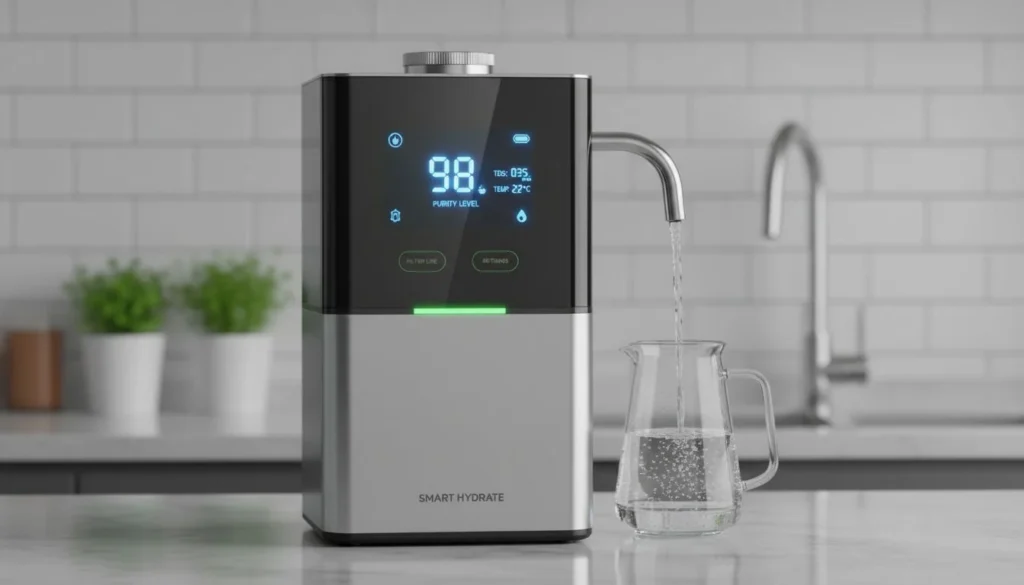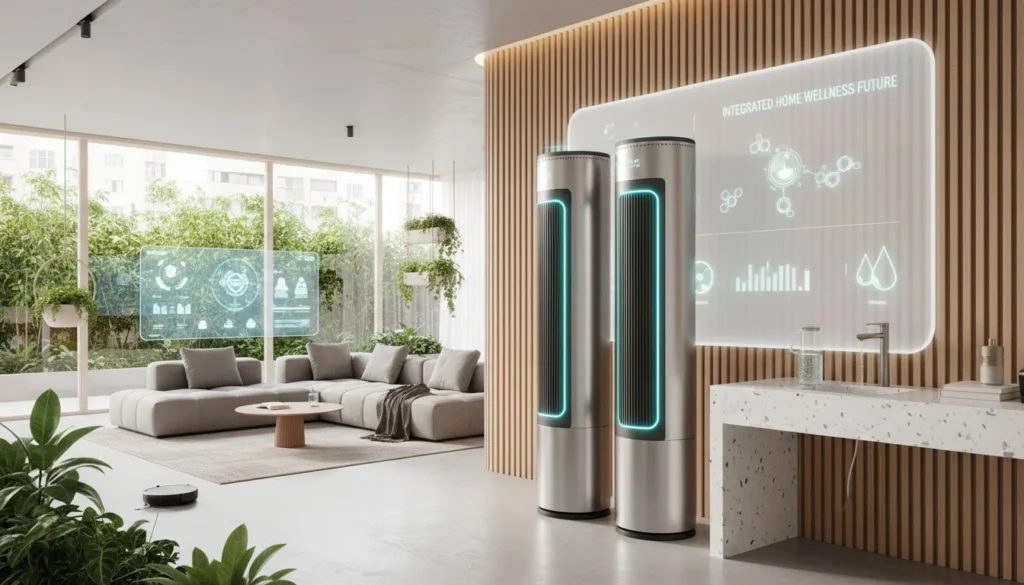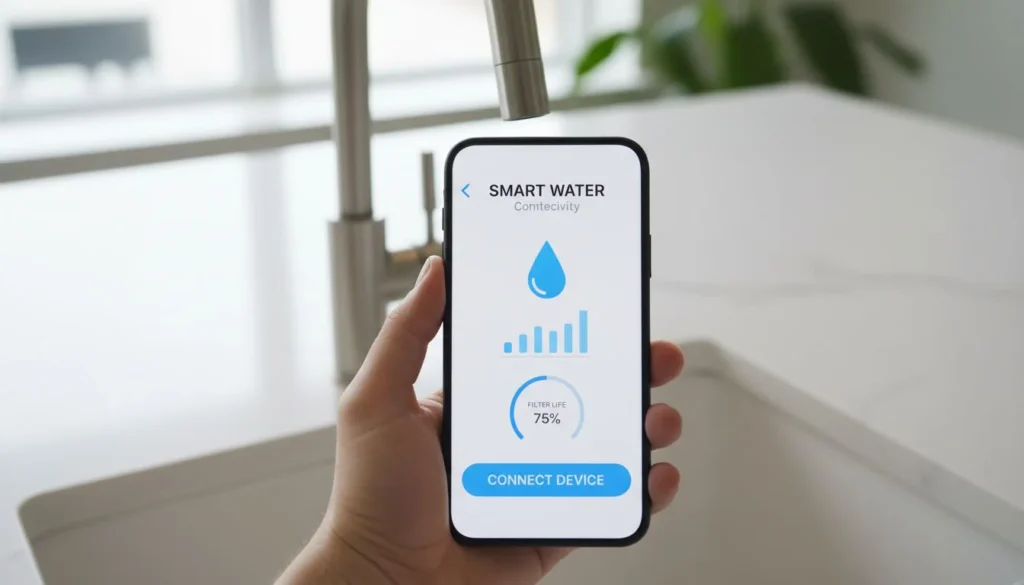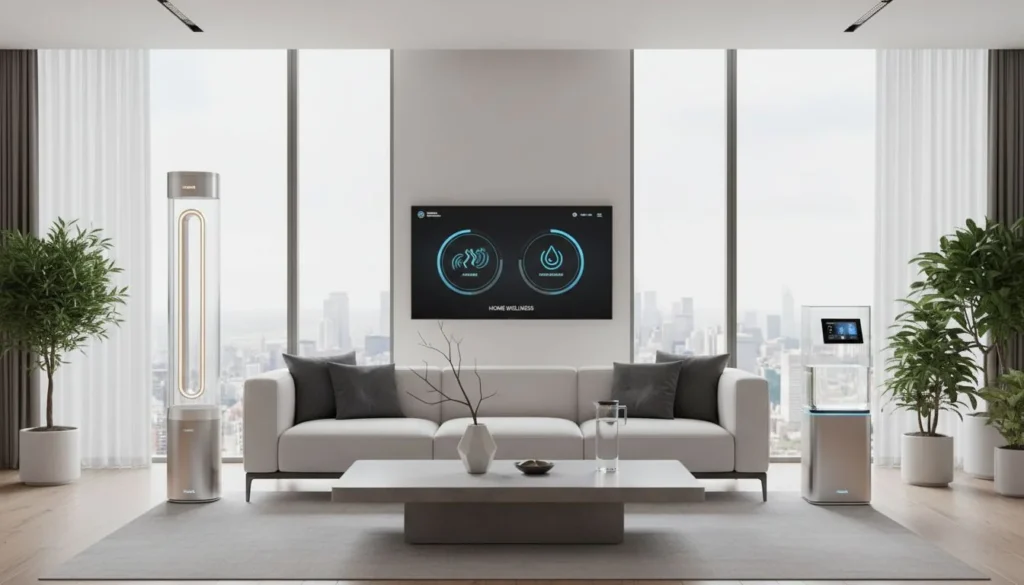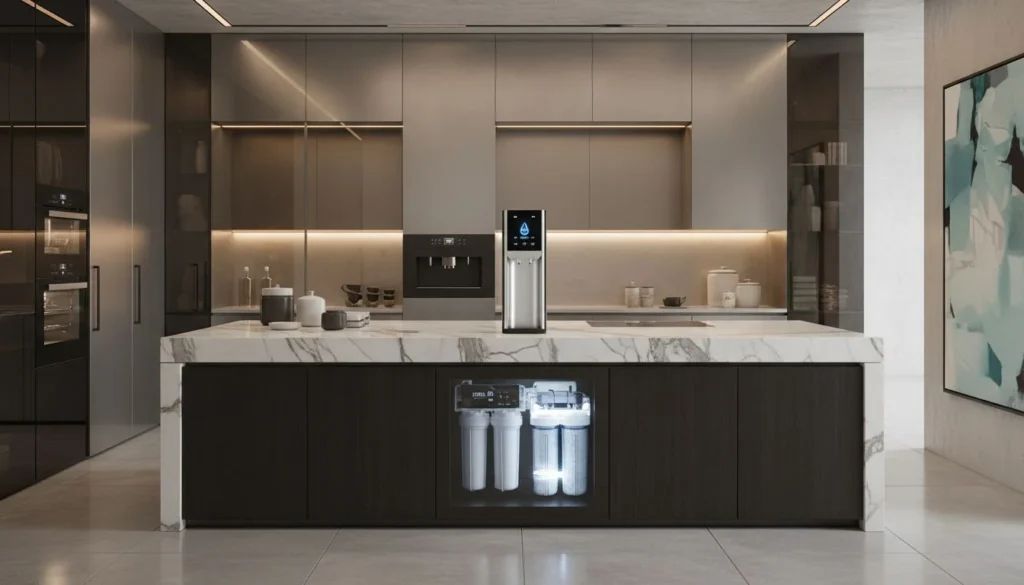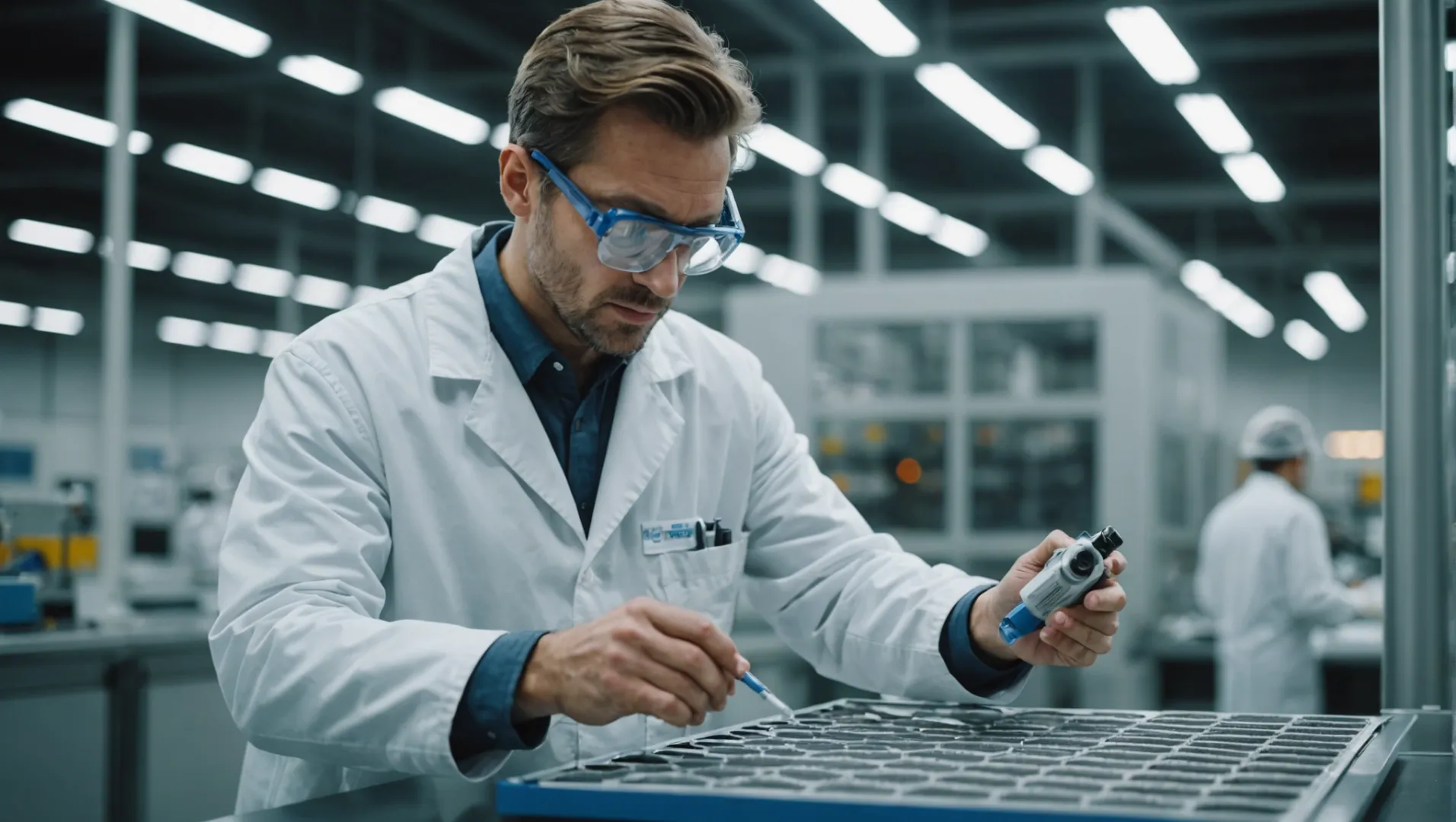
Encontrar o parceiro perfeito HEPA O fabricante do filtro pode ter um impacto significativo na qualidade do ar no seu espaço.
Considere factores como a experiência do fabricante, a versatilidade das aplicações, as certificações, a capacidade de produção e o feedback dos clientes ao escolher um HEPA fabricante de filtros. Estes elementos garantem a seleção de um fornecedor fiável e de alta qualidade para as suas necessidades de purificação do ar.
Embora seja essencial compreender estes factores primários, aprofundar os atributos específicos e as considerações adicionais pode proporcionar-lhe uma perspetiva mais matizada. Este guia detalhado tem como objetivo fornecer-lhe todas as informações necessárias para fazer uma escolha informada.
A experiência do fabricante afecta a qualidade do filtro HEPA.Verdadeiro
Fabricantes experientes garantem uma elevada qualidade de produção e conformidade.
Porque é que a experiência do fabricante é crucial na HEPA Indústria de filtros?
Navegar no HEPA O mercado de filtros requer a compreensão da importância da experiência.
Fabricantes experientes garantem conhecimentos especializados, capacidades de aplicação diversificadas, conformidade com as normas e elevada qualidade de produção, essenciais para uma HEPA filtros.
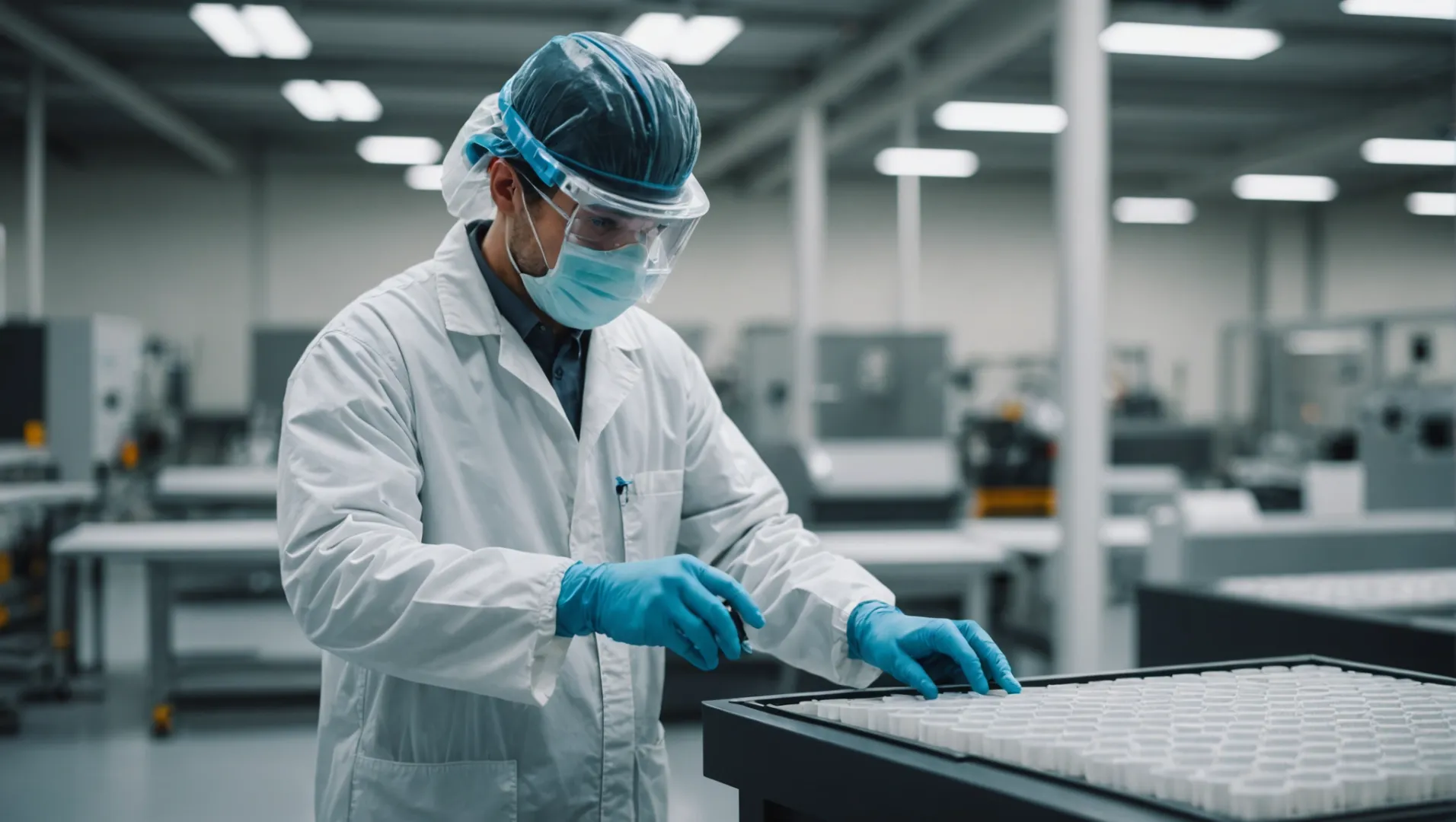
Competência e fiabilidade
Quando se trata de HEPA indústria de filtros1Se o fabricante for experiente, isso traduz-se em fiabilidade e especialização. Um fabricante com mais de 10 anos de experiência tem mais probabilidades de possuir uma compreensão profunda dos meandros envolvidos na conceção e produção de HEPA filtros. Esta experiência é fundamental, uma vez que tem um impacto direto na capacidade do filtro para remover eficazmente as partículas transportadas pelo ar.
Versatilidade nas aplicações
Os fabricantes com uma vasta experiência demonstram frequentemente versatilidade na satisfação de diversas necessidades, desde purificadores de ar residenciais a aplicações industriais e médicas. Esta adaptabilidade garante que os filtros produzidos podem satisfazer vários ambientes, oferecendo soluções à medida para diferentes desafios de qualidade do ar. Quer se trate de uma pequena unidade doméstica ou de um purificador de nível industrial, os fabricantes experientes estão equipados para lidar com todos eles.
Importância da certificação e das normas
Um fabricante experiente terá CNAS-Esta certificação é crucial, pois garante que os filtros fornecem o nível de proteção reivindicado. Esta certificação é crucial, uma vez que garante que os filtros fornecem o nível de proteção reivindicado. Ao escolher um fabricante com instalações de teste certificadas, está a garantir que o desempenho dos filtros é eficaz e fiável.
Capacidade de produção e flexibilidade
A elevada capacidade de produção combinada com a flexibilidade é outra caraterística dos fabricantes experientes. Podem escalar a produção de acordo com a procura sem comprometer a qualidade. Esta capacidade é vital para responder eficazmente a necessidades urgentes ou a projectos de grande escala.
Serviço ao cliente e personalização
Por último, os fabricantes experientes destacam-se pelo serviço ao cliente e oferecem opções de personalização. Com canais de comunicação rápidos, podem fornecer soluções personalizadas e adaptar-se rapidamente a requisitos específicos. Verificar os seus comentários de clientes2 e reputação no sector podem validar ainda mais a sua capacidade de prestar um serviço de excelência.
Os fabricantes experientes garantem a eficácia do filtro HEPA.Verdadeiro
A experiência garante a compreensão dos pormenores e das normas de conceção.
Todos os fabricantes de filtros HEPA têm laboratórios aprovados pelo CNAS.Falso
Apenas os fabricantes experientes têm normalmente laboratórios aprovados pelo CNAS.
Qual o impacto das certificações HEPA Qualidade do filtro?
As certificações são cruciais para garantir que HEPA Os filtros cumprem normas rigorosas de qualidade e desempenho.
As certificações garantem HEPA cumprem as normas estabelecidas em termos de eficiência e desempenho, proporcionando uma garantia de qualidade. Estas certificações validam a conformidade do fabricante com os padrões de referência da indústria, afectando a fiabilidade do filtro na remoção de partículas transportadas pelo ar e na melhoria da qualidade do ar.
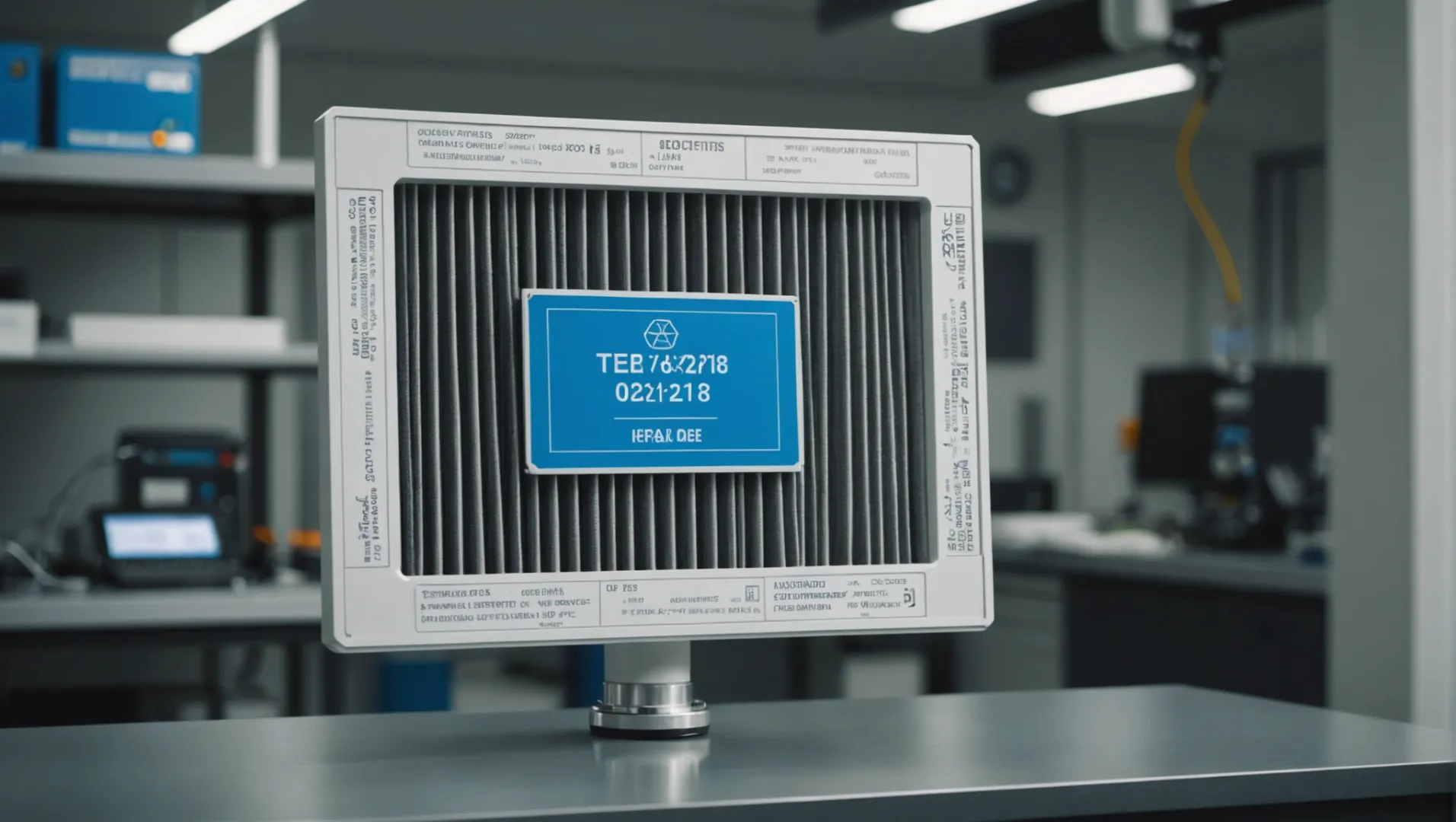
Compreensão HEPA Certificações de filtros
HEPAOs filtros de ar de partículas de elevada eficiência, ou filtros de ar de partículas de elevada eficiência, devem cumprir normas de desempenho específicas para serem eficazes. Certificações como ISO 29463 e EN 1822 garantem que estes filtros atingem uma eficiência mínima de 99,97% para partículas tão pequenas como 0,3 microns. Estas normas constituem uma referência de qualidade e fiabilidade.
Principais certificações e seu impacto
-
ISO 29463: Esta norma internacional especifica os métodos de ensaio para determinar a eficiência de HEPA filtros. Um filtro certificado pela ISO 29463 indica que foi submetido a testes rigorosos para cumprir as normas globais de eficiência.
-
PT 1822: Comummente utilizada na Europa, esta norma não só testa a eficiência das partículas como também examina a integridade do filtro. Um filtro certificado pela EN 1822 HEPA garante um elevado desempenho e consistência em várias aplicações.
O papel do fabricante na certificação
Os fabricantes com certificações de organismos reconhecidos demonstram o seu empenho na qualidade e consistência3. Estas certificações validam que os seus processos de produção cumprem os requisitos da indústria, garantindo que cada filtro funciona eficazmente em diferentes condições.
Benefícios da certificação HEPA Filtros
-
Qualidade garantida: As certificações garantem que o filtro terá o desempenho esperado, tornando-o uma escolha fiável para manter a qualidade do ar interior.
-
Conformidade com as normas sanitárias: Em ambientes médicos e industriais, o cumprimento de normas específicas é crucial. Os filtros certificados garantem o cumprimento destas normas sanitárias, reforçando a segurança e o bem-estar.
-
Credibilidade do mercado: Para os fabricantes, a posse de certificações aumenta a credibilidade e confiança4. Os consumidores podem selecionar com confiança os seus produtos, sabendo que cumprem os padrões de qualidade estabelecidos.
A importância dos laboratórios de ensaio
As certificações envolvem frequentemente testes efectuados por laboratórios de terceiros, o que acrescenta uma camada adicional de validação. A CNAS-Um laboratório aprovado pela Comissão Europeia, por exemplo, garante que os ensaios são imparciais e cumprem os critérios de ensaio internacionais. Esta verificação independente é essencial para manter um elevado nível de normas5 em HEPA produção de filtros.
A certificação ISO 29463 garante a eficiência do filtro HEPA.Verdadeiro
A norma ISO 29463 certifica que os filtros cumprem as normas de eficiência global, garantindo a qualidade.
A norma EN 1822 não testa a integridade do filtro HEPA.Falso
A norma EN 1822 testa tanto a eficiência das partículas como a integridade do filtro em termos de desempenho.
Que papel desempenha o feedback dos clientes na escolha de um fabricante?
O feedback dos clientes é uma ferramenta poderosa para selecionar o fabricante certo, oferecendo informações que vão para além das meras especificações.
O feedback dos clientes fornece informações valiosas sobre a fiabilidade, a qualidade dos produtos e a eficiência dos serviços de um fabricante. Ajuda a identificar questões consistentes e a avaliar a forma como os fabricantes resolvem os problemas, orientando, em última análise, a tomada de decisões informadas.

A importância do feedback dos clientes
O feedback dos clientes é um componente essencial na avaliação de potenciais fabricantes. Oferece uma visão real do desempenho de um fabricante, muito para além do que é anunciado no seu sítio Web ou nos materiais de marketing. Compreender a forma como os clientes anteriores experimentaram o produto e o serviço pode esclarecer aspectos como qualidade do produto6, prazos de entrega e apoio ao cliente.
Identificação de padrões e consistências
Uma das principais vantagens do feedback dos clientes é a capacidade de identificar padrões recorrentes. Por exemplo, se vários clientes mencionarem atrasos nas entregas ou uma comunicação deficiente, estes podem ser sinais de alerta significativos. Por outro lado, um feedback positivo consistente reforça a fiabilidade e a reputação do fabricante.
Avaliar as capacidades de resolução de problemas
O feedback inclui frequentemente cenários em que surgiram problemas e a eficácia com que o fabricante os resolveu. A análise destes casos pode fornecer informações sobre as suas capacidades de resolução de problemas e o seu empenhamento na satisfação do cliente. Por exemplo, um fabricante que resolve prontamente os problemas e recebe elogios pelo seu serviço é provavelmente mais fiável.
Utilização de plataformas em linha
Muitas plataformas agregam as opiniões dos clientes, o que facilita a recolha de comentários alargados. Sítios Web como Trustpilot7 ou fóruns específicos do sector8 oferecem uma grande quantidade de informações a partir de perspectivas variadas. Isto democratiza o processo de feedback, permitindo-lhe obter informações a partir de um vasto espetro de experiências.
Equilibrar o feedback com outros factores
Embora o feedback dos clientes seja vital, é importante equilibrar estas informações com outros factores críticos, como certificações, capacidades de produção e conhecimentos técnicos. O feedback deve complementar estes elementos, proporcionando uma visão completa do potencial do fabricante.
Implementação de mecanismos de feedback
Ao escolher um fabricante, considere se este procura ativamente e valoriza o feedback dos clientes. Os fabricantes que se envolvem com os seus clientes através de inquéritos ou sessões regulares de feedback demonstram um compromisso com a melhoria contínua e a satisfação do cliente.
Ao analisar minuciosamente o feedback dos clientes, juntamente com outros factores essenciais, pode melhorar significativamente o seu processo de tomada de decisão e selecionar um fabricante que corresponda às suas necessidades.
O feedback dos clientes destaca a pontualidade de entrega do fabricante.Verdadeiro
O feedback revela frequentemente se um fabricante cumpre sistematicamente os prazos de entrega.
Os fabricantes raramente utilizam o feedback dos clientes para melhorar.Falso
Muitos fabricantes procuram ativamente obter feedback para melhorar os seus serviços.
A personalização e a comunicação são factores-chave na sua decisão?
A personalização e a comunicação desempenham um papel fundamental na escolha do HEPA fabricante de filtros.
A personalização garante a HEPA O filtro responde a necessidades específicas, enquanto uma comunicação eficaz garante respostas atempadas e precisas, essenciais para a tomada de decisões.
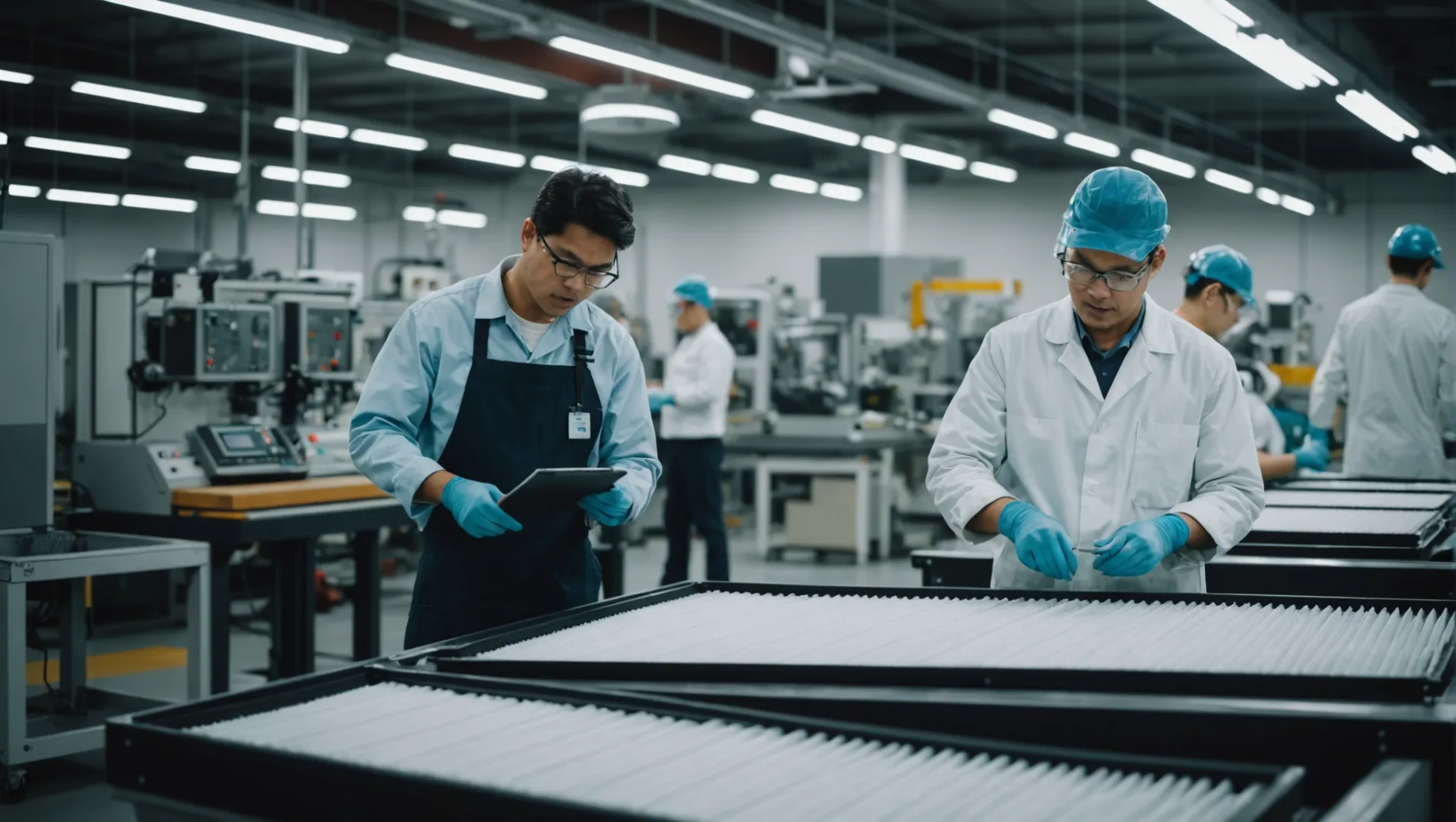
A importância da personalização
Ao selecionar um HEPA fabricante de filtros, a personalização é fundamental. Cada ambiente tem caraterísticas únicas requisitos e condicionalismos9A maioria dos produtos é fabricada em espaços residenciais que necessitam de filtros mais silenciosos e em ambientes industriais que exigem soluções robustas e de grande escala. Um fabricante que ofereça personalização pode adaptar os produtos a estas necessidades distintas, garantindo um desempenho ótimo.
Por exemplo, em ambientes médicos em que a pureza do ar é crítica, a HEPA podem ser concebidos para cumprir normas sanitárias rigorosas. Esta adaptabilidade não só aumenta a eficiência do filtro, como também prolonga a sua vida útil, alinhando-se com as exigências específicas da aplicação.
Comunicação: A ponte para o sucesso
Comunicação eficaz com o seu HEPA é igualmente crucial. Abrange tudo, desde o inquérito inicial até ao apoio pós-venda. Uma comunicação clara e reactiva ajuda a clarificar as especificações técnicas, a resolver rapidamente os problemas e a garantir uma colaboração harmoniosa.
Os fabricantes com canais de comunicação robustos podem fornecer actualizações em tempo real sobre os prazos de produção e entrega, permitindo-lhe planear em conformidade. Esta transparência promove a confiança e reduz as potenciais perturbações na sua cadeia de abastecimento.
Avaliação das capacidades de personalização e comunicação
Para avaliar as capacidades de personalização de um fabricante, informe-se sobre os seus projectos anteriores e a forma como abordaram desafios únicos. Procure testemunhos ou estudos de caso que realcem a sua capacidade de fornecer soluções personalizadas.
Relativamente à comunicação, avalie os tempos de resposta e a disponibilidade para fornecer informações pormenorizadas. Pode considerar a possibilidade de participar numa discussão preliminar ou num projeto experimental para avaliar em primeira mão a sua eficácia comunicativa.
| Critérios | Perguntas a fazer |
|---|---|
| Personalização | Podem modificar os filtros de acordo com as necessidades específicas do sector? |
| Qual é a sua experiência com soluções à medida? | |
| Comunicação | Com que rapidez respondem aos pedidos de informação? |
| São proactivos no fornecimento de actualizações? |
Ao dar prioridade à personalização e à comunicação, garante que o seu HEPA O fabricante do filtro está bem alinhado com as suas exigências operacionais e expectativas de qualidade. Estes factores não só melhoram os resultados dos seus projectos actuais, como também estabelecem uma base para parcerias a longo prazo. Ao investir num fabricante adepto de ambas as áreas, estará a reforçar as suas iniciativas de qualidade do ar com precisão e fiabilidade.
A personalização melhora o desempenho do filtro HEPA.Verdadeiro
Os projectos personalizados melhoram a eficiência e o tempo de vida útil, respondendo a necessidades específicas.
Uma comunicação eficaz reduz as perturbações na cadeia de abastecimento.Verdadeiro
Actualizações e respostas claras garantem uma colaboração e um planeamento sem problemas.
Conclusão
Dê prioridade à experiência, às capacidades, às certificações e às avaliações ao selecionar um HEPA fabricante de filtros. Isto garante qualidade e fiabilidade para as suas necessidades de purificação do ar. Agora, entre em contacto com potenciais fornecedores para obter mais informações.
-
Explore os principais fabricantes conhecidos pela qualidade e fiabilidade..: Há mais de 60 anos que a equipa da RP Fedder se orgulha de conceber e fabricar filtros HEPA personalizados para praticamente todas as aplicações existentes. ↩
-
Leia as opiniões dos clientes para avaliar a qualidade e a satisfação do serviço: Testámos mais de 60 purificadores de ar nos últimos nove anos, e o excecional Coway Airmega AP-1512HH Mighty é a nossa melhor escolha entre eles. ↩
-
Saiba porque é que a certificação ISO garante um desempenho consistente do filtro HEPA..: A norma ISO 14644-1 é a referência global para a classificação da limpeza do ar em ambientes controlados. Esta norma delineia ... ↩
-
Explore como as certificações aumentam a confiança e a posição no mercado..: Entre os vários tipos de filtros de ar, os filtros HEPA destacam-se pela sua eficiência e fiabilidade na manutenção de um ambiente seguro e estéril. ↩
-
Descubra como os laboratórios do CNAS garantem testes rigorosos e imparciais..: O principal papel dos filtros HEPA é reter partículas, incluindo microorganismos, do ar. Eles garantem que o ar de exaustão libertado ... ↩
-
Explore a razão pela qual a qualidade do produto é crucial nas decisões de fabrico..: Assegura uma produção consistente, evitando atrasos devido a uma má qualidade. ↩
-
Leia as opiniões de diversos clientes na Trustpilot para obter informações mais amplas..: Encontre e compare as melhores empresas de Produção na Trustpilot e adicione a sua própria experiência. ↩
-
Encontrar fóruns com experiências reais de utilizadores sobre fabricantes..: Fóruns Practicalmachinist dot com. Há uma grande quantidade de informação, alguns dos habitantes podem ser rudes, mas não deixam de ser um ótimo recurso. É frequentemente o meu ... ↩
-
Descubra como os designs personalizados melhoram a eficiência e a vida útil..: Filtros HEPA personalizados para OEMs. Melhore o desempenho do seu equipamento com uma filtragem óptima, baixa queda de pressão e vida útil prolongada. Contacte-nos hoje mesmo! ↩


